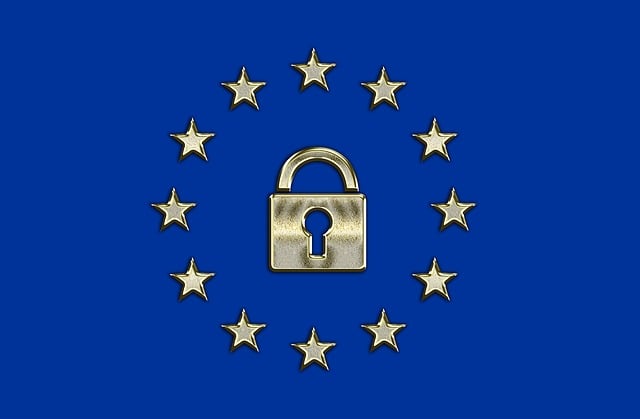Regulatory compliance is a complex process requiring businesses to understand and adhere to diverse sector laws and rules, with non-compliance leading to penalties and legal issues. In defamation cases, proving damages is crucial for compensation; this involves presenting concrete evidence like medical records, financial statements, and witness testimonies to demonstrate actual harm, emotional distress, or reputation loss. Effective proof of damages plays a significant role in defense strategies, influencing jury perception, settlement negotiations, and increasing the likelihood of favorable outcomes, including verdict victories. Businesses should adopt proactive compliance measures to avoid legal battles and mitigate risks.
In today’s complex legal landscape, understanding regulatory compliance is paramount for businesses and individuals alike. This comprehensive guide delves into the intricacies of regulatory compliance issues, offering a detailed overview for navigating challenging scenarios. Specifically, we explore strategies to prove damages in defamation cases, ensuring robust legal defenses and effective risk mitigation. By understanding these key aspects, you’ll be better equipped to navigate potential pitfalls and protect your interests.
- Understanding Regulatory Compliance: A Comprehensive Overview
- Navigating Damages in Defamation Cases: Proving Your Case
- Strategies for Effective Legal Defense and Mitigating Risks
Understanding Regulatory Compliance: A Comprehensive Overview

Regulatory compliance involves adhering to laws, rules, and standards set by governing bodies to ensure businesses operate ethically and responsibly. It’s a complex landscape that demands constant vigilance, as regulations span various sectors, from financial services to healthcare. Understanding these requirements is crucial, especially for white collar defense strategies, as non-compliance can lead to severe consequences, including hefty fines, legal penalties, and even a complete dismissal of all charges.
Navigating this process requires a thorough grasp of the relevant regulatory environment. Businesses must implement robust systems to monitor changes in legislation and ensure their practices align with current standards. One critical aspect often at play in these cases is proving damages in defamation situations. Effective compliance programs not only mitigate legal risks but also foster trust within the philanthropic and political communities, demonstrating a commitment to ethical conduct that can be pivotal in defending against allegations and achieving a complete dismissal of all charges.
Navigating Damages in Defamation Cases: Proving Your Case

Navigating Damages in Defamation Cases: Proving Your Case
In any defamation lawsuit, proving damages is a critical step to securing compensation for harm caused by false statements. When pursuing a case, it’s crucial to understand the specific types of damages that can be claimed, such as actual harm, emotional distress, and loss of reputation. The key lies in presenting concrete evidence and detailed documentation that illustrate the impact of the defamatory remarks on an individual or entity. This may include medical records, financial statements, and testimony from witnesses who can attest to the changes in behavior or opportunities affected by the defamation.
For a successful white collar defense or general criminal defense strategy, effectively proving damages is often a game-changer. It demonstrates the severity of the harm caused, which can influence both the jury’s perception and any subsequent settlement negotiations. Moreover, it helps establish a winning challenging defense verdict by showcasing the tangible consequences of defamation, ensuring that those affected receive just compensation for their troubles.
Strategies for Effective Legal Defense and Mitigating Risks

Navigating regulatory compliance issues can be a complex and daunting task for any business. To mount an effective legal defense and mitigate risks, companies must adopt proactive strategies. This includes regular reviews of relevant laws and regulations to ensure adherence, as well as implementing robust internal controls and training programs to educate employees on their responsibilities. By fostering a culture of compliance, organizations can significantly reduce the likelihood of costly legal battles and reputational damage.
In cases where non-compliance leads to litigation, such as defamation suits, proving damages can be a pivotal aspect in achieving extraordinary results. Demonstrating tangible harm caused by false statements or publications is crucial for securing compensation. Legal teams should focus on gathering compelling evidence, including expert testimony and financial records, to illustrate the extent of damages across the country. Preparedness for potential jury trials will also play a significant role in reaching favorable outcomes and safeguarding the interests of the organization.
In navigating complex regulatory compliance issues, understanding your legal obligations and proactively managing risks are key. While facing defamation cases, effectively proving damages is crucial for a robust defense strategy. By adopting innovative approaches and leveraging legal expertise, organizations can mitigate potential risks and safeguard their reputation in today’s litigious landscape. Remember, staying ahead of regulatory changes and employing strategic defenses, especially when proving damages in defamation cases, are essential to maintaining compliance and fostering long-term success.






